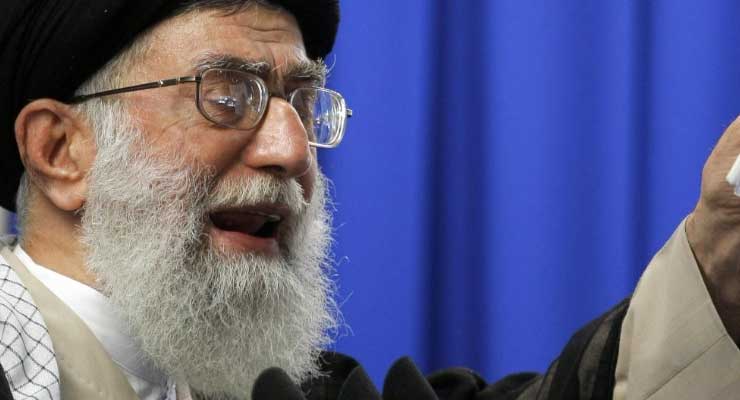
Iran’s Supreme leader Ayatollah Ali Khamenei said in early September that he supported a vote in Iran’s parliament regarding the nuclear deal that was reached between Iran and the five major global powers (formerly 6 until Russia was kicked out for invading Crimea) which includes the U.S, Germany, France China and Great Britain. “Parliament should not be sidelined on the nuclear deal issue” the Supreme leader said in his statement on September 3rd. “It is up to them to decide”, he continued.
The landmark deal that was brokered between the West and Iran on July 14th has been seen as a breakthrough and a thaw in the relationship which has been seen as a hostile one since the current regime took power through revolution in 1979. “I have told the president that it’s not in our interest to not let our lawmakers review the deal,” Iran’s top Shi’ite Muslim cleric said following Mr. Khamenei’s endorsement of a review by parliament.
Iran’s system of government is defined as a theocracy in which all of its actions are influenced by Islam and the most important political figure inside of Iran is the supreme leader, Mr. Khamenei, while the President, Hassan Rouhani is second in influence within the political process and is only allowed to serve two four year terms.
“Should the sanctions be suspended, then there would be no deal either. So this issue must be resolved. If they only suspend the sanctions, then we will only suspend our nuclear activities” the Supreme leader continued in his remarks.
One of the main issues that Iran is concerned about is the sanctions that have been placed on their economy following the 1979 revolution. The list of four sanctions that Iran would like to have removed from its economy include, 1) Release of Iran’s frozen funds abroad which is worth 100 billion, 2) Removal of sanctions against exports of Iran’s oil, which will increase oil revenues, 3) Opens the way for foreign firms to invest in Iran’s oil and gas, automobiles, hotels and other sectors. 4) Will restore Iran’s ability to trade with the rest of the world and use the global banking system.
The supreme leader said if the sanctions were not taken off of its economy, “then we could soon go on and triple the numbers of centrifuges to 60,000 keep a 20% level of uranium and also accelerate our research and development activities”. In Iran, a committee in parliament has been assigned to review the deal.
“The agreement needs to be discussed and needs to be approved by the Iranian parliament” Ali Larijani who is the speaker of parliament said regarding the nuclear deal. “There will be heated discussions and debates”.
While the deal is still up for debate in Iran, the agreement has only symbolic opposition from Republicans in the
United States as president Obama hit the 41 necessary senators in the United States senate who support the deal. The vote in the senate has been largely based on partisan lines as all of the Republicans voted no and a majority of Democrats voted yes.
“ They don’t like the notion of filibuster” Senate Majority leader Dick Durbin ( D- Ill) said regarding the nuke deal and who is one of supporters of the deal. “Now we’re getting into the type of what vote it is, nobody knows the answer to the questions”.
“Even the Ayatollah Khamenei said the Iran parliament gets a vote on the nuke deal. It would be beyond irresponsible for Senate Democrats to block by a filibuster, the vote” Senate Minority whip John Cornyn (R- TX) said regarding the deal and the Democrats attempt to use procedural tactics to pass the agreement. In an example of the partisan nature of the nuke deal, Democratic Senator, Maria Cantwell (D-WA) said “I’ll support it in any way I can”.
Ultimately, the Iran nuclear deal even though agreed upon by the 5 major global powers and Iran, is far from a done deal as the Iranian parliament is currently reviewing its content and there will be a fierce debate to see if the deal is, in their view, fair for Iran.
Leave a Reply